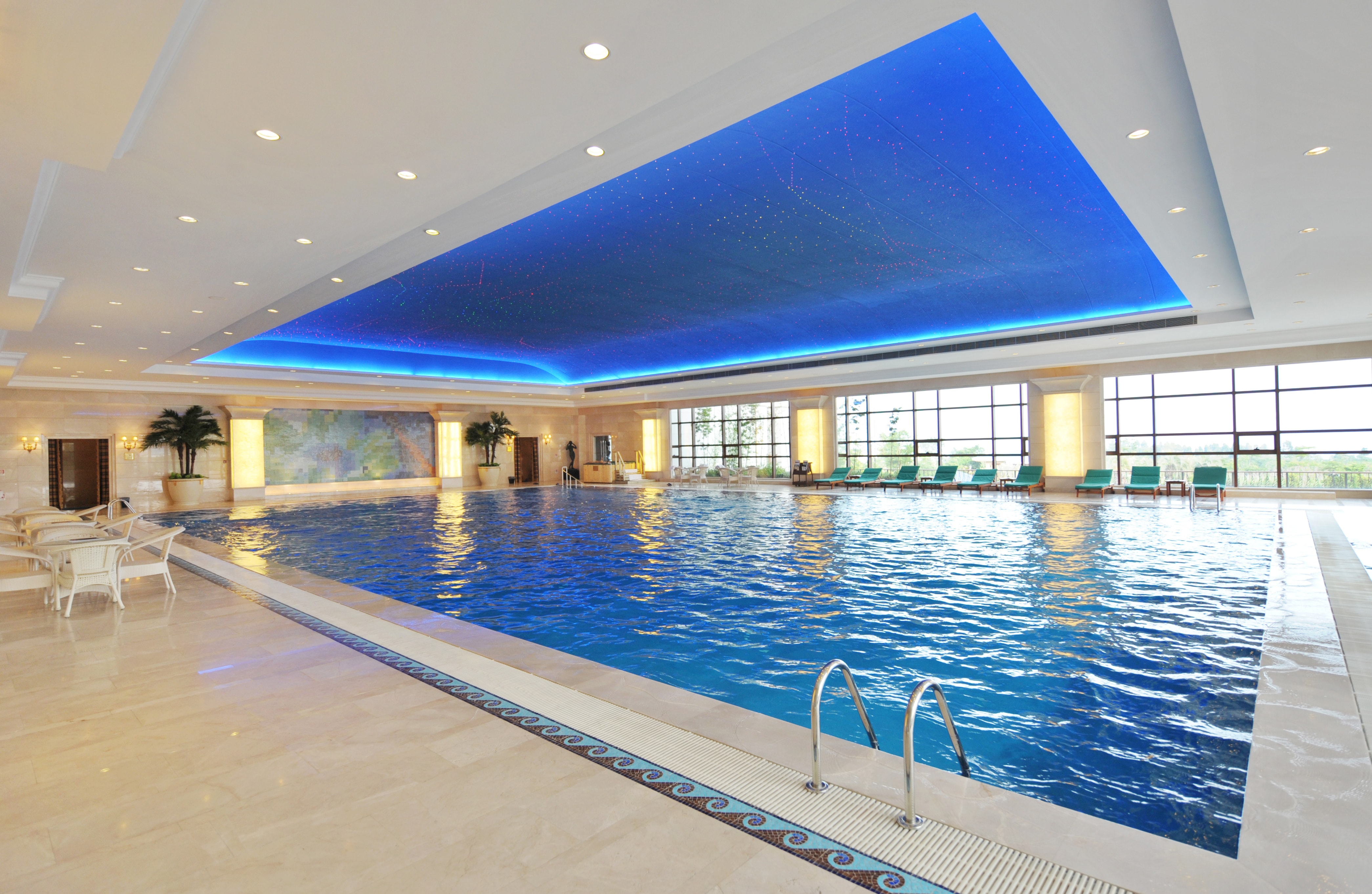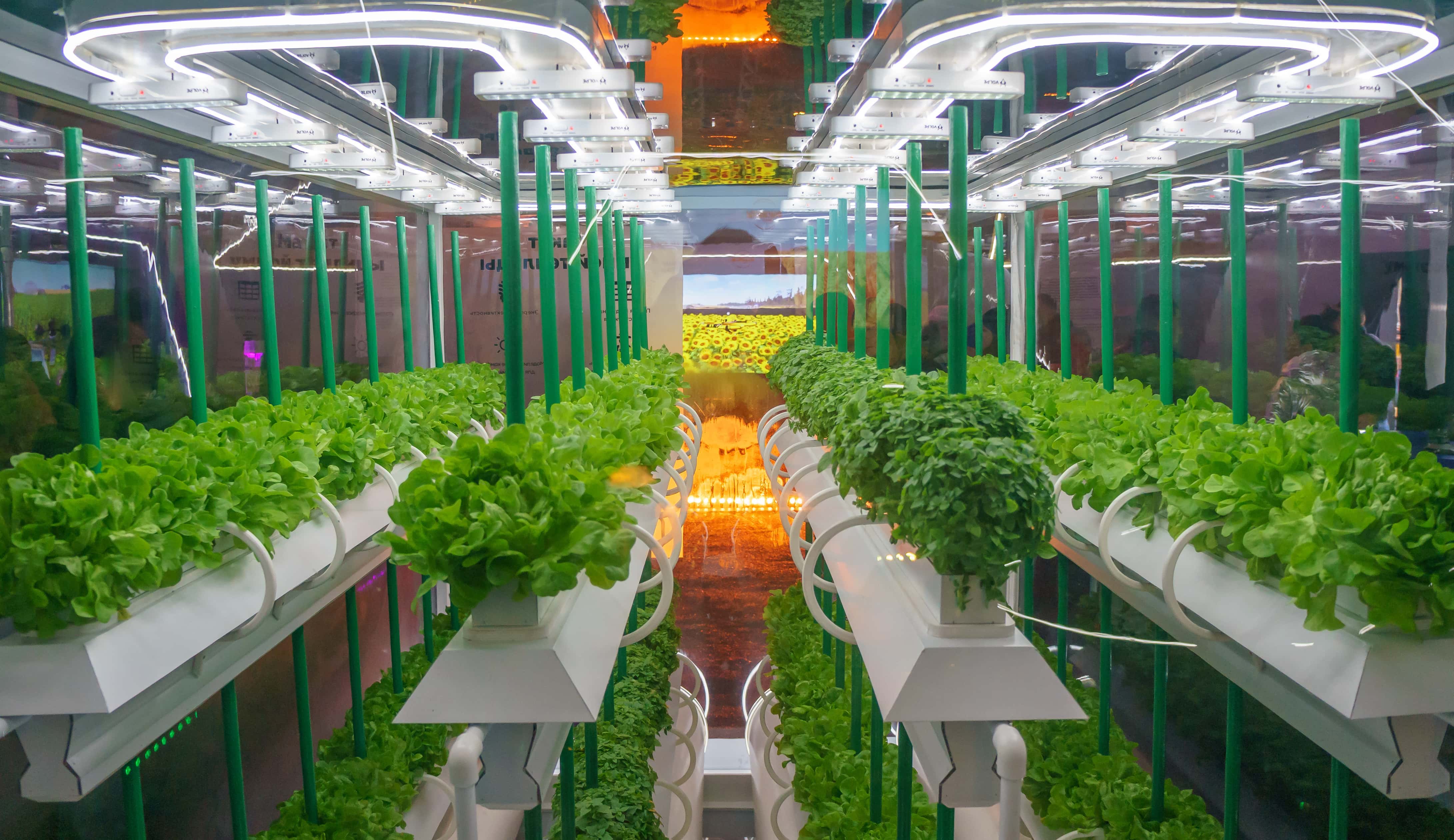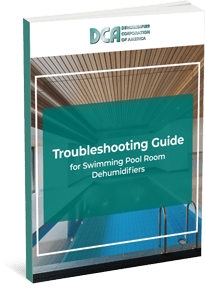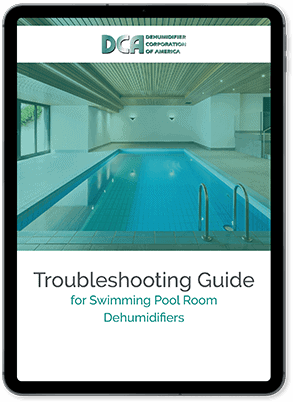Out-of-control humidity and moisture can be quite destructive and reduce the effectiveness of manufacturing equipment. Many industries rely on industrial humidity control to keep inventory and other assets safe from airborne moisture.
A commercial dehumidifier can be categorized as either desiccant or mechanical in their construction. This article will focus on mechanical dehumidifiers, in which DCA specializes. Mechanical dehumidifiers work best in environments with air room temperatures below 95°F and dew points above 50°F. When a lower dew point is present, a desiccant system is needed which often works in tandem with a mechanical system.
Using Dehumidifiers for Humidity Control
Most work facilities already have functioning air conditioning as part of their central HVAC system. Air conditioning will naturally contribute to moisture reduction while also adding cool air into the space. However, air conditioning may not be enough to meet all dehumidification needs. This is especially true as the room gets colder.
A commercial dehumidification system will be more efficient in managing humidity levels than air conditioning alone. As the primary function of air conditioning is only temperature control, it would be quite expensive to use it as a dehumidifier. Not to mention that workers may be uncomfortably cold if an A/C is used as a dehumidifier. A commercial dehumidifier will be much more cost-efficient, while also keeping temperatures at a comfortable level. Additionally, a commercial dehumidifier can provide cold dry air or warm dry air which helps in reducing temperature control costs.
No two businesses are the same, and many require their own unique humidity control systems. A successful dehumidification system needs to be tailored to the specific operation. That’s why working with DCA is especially helpful. Our team has over 100 years of collective experience and can take a consultative approach with every client regardless of industry.

Humidity and Moisture Control in Industrial Applications
The need for commercial dehumidifiers can be found in countless industries. Here are some of the major examples:
- Hospitality and recreational swimming pools– Whether a spa or a hotel, indoor pools will almost certainly need some type of commercial humidity control. Not only does a dehumidifier prevent microbial growth, but it will also keep guests comfortable. A muggy pool room can be difficult to enjoy, negatively affecting the reputation of your business.
- Greenhouses and vertical grow farms– No matter the crop, plants will behave differently at certain humidity levels. While high humidity levels can reduce the need for irrigation, it also increases the risk of plant disease. Most indoor grow operations require some level of dehumidification to keep crops productive.
- Warehouse and Storage– Too much moisture can wreak havoc on a warehouse. This can include damaged kit materials, damaged inventory, accelerated corrosion on machinery, and even damage to the warehouse structure itself. Regardless of the items being stored, humidity can create problems for any warehouse. A properly installed industrial humidity control system can minimize these risks.
- Manufacturing– Specific manufacturing facilities may have strict limits for humidity tolerances. This is especially true for the food industry, the pharmaceutical industry, and electronics. While humidity increases the risk of microbial infections and corrosion, it also presents a risk of static electricity damage. Most manufacturers try to keep humidity levels between 40% and 60%, but this can vary based on what is being produced.
- Printing– As the printing business often relies on rapid drying ink, humidity can play a role in the quality of print jobs. Low humidity rates can increase static charge and defect rates. While each type of printing has its own unique needs, we can provide solutions for common types of industrial printing. This includes Gravure printing, screen printing, sheet-fed offset printing, and web offset rotary printing.
- Fresh and Waste Water Treatment Plants– Well-maintained humidity is critical for the maintenance of fresh and wastewater treatment facilities. These plants have a large number of metal surfaces across their entire operation. As these machines are treating water, this tends to lower the room’s temperature below the dew point. As such, moisture and dew will accumulate on the machinery, creating risks for corrosion and rust. An industrial humidity control system can help regulate dew points and humidity to minimize the risk of dew accumulation.
- Grinding Industry– It is common for the grinding industry to use water-based lubricants. In these scenarios, water is sprayed directly onto the tools to act as both a lubricant and cooling agent. This causes humidity levels to increase. Humidity problems tend to escalate in colder months when doors and windows are left closed. To help stop rust from forming on surface metals, an industrial dehumidifier is needed.
- Medical Industry– The medical industry is as sensitive to humidity as the food industry. In some applications, even more so. Many pharmaceutical drugs are reactive to water. As such, improper levels of humidity can make these drugs unusable. Controlling humidity levels can also help maintain sterile conditions.
Plastic Bottle Manufacturing– Plastic is particularly vulnerable to static during the production phase. Proper humidity control can help minimize the risks posed by static electricity. - Fitness Centers and Gyms– In any room that has many sweating participants, the moisture in the room will increase. This can create a muggy feeling that is uninviting to guests. Additionally, the increased humidity can cause gym equipment to deteriorate faster than in a dry environment.
Packaging and Blending Rooms– Many packaging materials act as a desiccant, meaning they will absorb the moisture in the air. If they absorb too much, they can slow down and even clog automated packaging machines.
Choosing the Best Dehumidifier for Your Application From DCA
When it comes to dehumidification, there is no one-size-fits-all solution. Even in similar industries, different dehumidification systems are often needed. Here are some things to consider when designing a dehumidification system:
- Where is the moisture coming from? Is it being released at certain times?
- Is outdoor air being introduced into the space? Are there any exhaust fans or gravity ducts in operation?
- Are leaky doors or windows contributing to humidity or dew point levels? Are doors to the outside being opened periodically?
- What humidity and dew point levels are required for your application?
- What air room temperature is required for your project?
- Is the area air-conditioned or heated?
- What is the geographical location of the facility? Humid climates tend to be more challenging.
- What type of material was used in the building construction?
- How many people typically work in the space?
These questions, and several others, are considered by the engineers at DCA when designing your system. Our goal is to provide you with the best dehumidification system that is specifically tailored to your needs and operation. We rely on industry-leading equipment to provide our clients with the best dehumidification solutions.
We have worked with countless industries and clients to solve their humidity needs, including indoor pools, large industrial dehumidifier solutions, outdoor dehumidification systems, grow house dehumidification systems, and custom dehumidification systems. We are the trusted experts when it comes to humidity control.
Contact Our Experts for Custom Dehumidification Solutions
To learn more about our selection of industrial humidity control solutions, don’t hesitate to contact us today. If you already have a project in mind, feel free to request a quote.
Topics: Dehumidifiers, Industrial dehumidifiers






